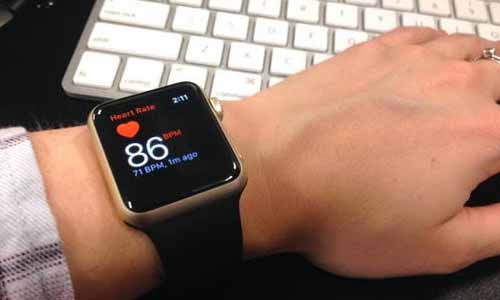- Home
- Medical news & Guidelines
- Anesthesiology
- Cardiology and CTVS
- Critical Care
- Dentistry
- Dermatology
- Diabetes and Endocrinology
- ENT
- Gastroenterology
- Medicine
- Nephrology
- Neurology
- Obstretics-Gynaecology
- Oncology
- Ophthalmology
- Orthopaedics
- Pediatrics-Neonatology
- Psychiatry
- Pulmonology
- Radiology
- Surgery
- Urology
- Laboratory Medicine
- Diet
- Nursing
- Paramedical
- Physiotherapy
- Health news
- Fact Check
- Bone Health Fact Check
- Brain Health Fact Check
- Cancer Related Fact Check
- Child Care Fact Check
- Dental and oral health fact check
- Diabetes and metabolic health fact check
- Diet and Nutrition Fact Check
- Eye and ENT Care Fact Check
- Fitness fact check
- Gut health fact check
- Heart health fact check
- Kidney health fact check
- Medical education fact check
- Men's health fact check
- Respiratory fact check
- Skin and hair care fact check
- Vaccine and Immunization fact check
- Women's health fact check
- AYUSH
- State News
- Andaman and Nicobar Islands
- Andhra Pradesh
- Arunachal Pradesh
- Assam
- Bihar
- Chandigarh
- Chattisgarh
- Dadra and Nagar Haveli
- Daman and Diu
- Delhi
- Goa
- Gujarat
- Haryana
- Himachal Pradesh
- Jammu & Kashmir
- Jharkhand
- Karnataka
- Kerala
- Ladakh
- Lakshadweep
- Madhya Pradesh
- Maharashtra
- Manipur
- Meghalaya
- Mizoram
- Nagaland
- Odisha
- Puducherry
- Punjab
- Rajasthan
- Sikkim
- Tamil Nadu
- Telangana
- Tripura
- Uttar Pradesh
- Uttrakhand
- West Bengal
- Medical Education
- Industry
New York Cardiologist files lawsuit against Apple over atrial fibrillation sensor in Watch

New York: New York University cardiologist Dr Joseph Wiesel has gone ahead and filed a lawsuit against tech giant Apple, alleging that the Apple Watch infringes his patent for a method to detect an irregular heartbeat ( atrial fibrillation).
In particular, the cardiologist claimed that the i-phone maker is "wilfully violating his patent surrounding the technology used in Apple Watch to detect atrial fibrillation (AFib)".
According to the cardiologist, he was originally awarded the patent for "method of and apparatus for detecting atrial fibrillation" on March 28, 2006 which allows patients to use "photoplethysmography" -- used in the Apple Watch with green light and sensors.
The lawsuit called the patent "pioneering steps in atrial fibrillation detection," reports AppleInsider.
Dr Wiesel said he notified Apple about his patent on September 20, 2017, following the rollout of the Apple Watch Series 3.
The lawsuit alleged that Apple refused to negotiate in good faith "even after Dr Wiesel provided Apple detailed claim charts highlighting the elements of Dr Wiesel's patent claims and mapping them to elements of Apple's Watch products," the report said on Friday.
Dr Wiesel has demanded royalties going forward, legal fees and recovery of past damages from Apple, alleging patent infringement by Apple is "wilful, intentional, and deliberate".
Apple was yet to respond to the lawsuit filed at the federal court in Brooklyn.
Although the Apple Watch does not provide a final conclusion into whether a person is actually suffering from Atrial fibrillation (AFib) -- irregular heartbeat that can lead to blood clot formation in the heart which then embolises to the brain causing stroke -- the readings will make more people consult their physicians about their heart health.
New electrodes built into the back crystal and Digital Crown on Apple Watch Series 4 or later, work together with the ECG app to enable customers to take an ECG similar to a single-lead reading.
To take an ECG recording at any time or following an irregular rhythm notification, hold their finger on the Digital Crown. As the user touches the Digital Crown, the circuit is completed and electrical signals across their heart are measured.
Read Also: Foreign Medicos struggle to get equal pay at AIIMS, PGI Chandigarh, JIPMER
After 30 seconds, the heart rhythm is classified as either AFib, sinus rhythm or inconclusive.
The irregular rhythm notification feature was recently studied in the Apple Heart Study. With over 400,000 participants, the Apple Heart Study was the largest screening study on atrial fibrillation ever conducted.
Although accurate worldwide estimates are lacking, calculations suggest that over one per cent of the adult population is affected with atrial fibrillation in the developed world.
Read Also: Soon: One year Mandatory Internship for Foreign MBBS Graduates in India
Farhat Nasim joined Medical Dialogue an Editor for the Business Section in 2017. She Covers all the updates in the Pharmaceutical field, Policy, Insurance, Business Healthcare, Medical News, Health News, Pharma News, Healthcare and Investment. She is a graduate of St.Xavier’s College Ranchi. She can be contacted at editorial@medicaldialogues.in Contact no. 011-43720751


